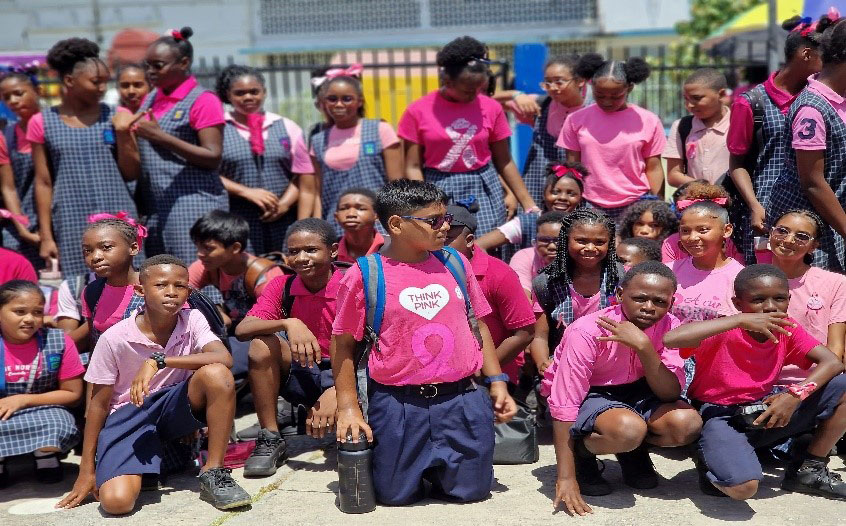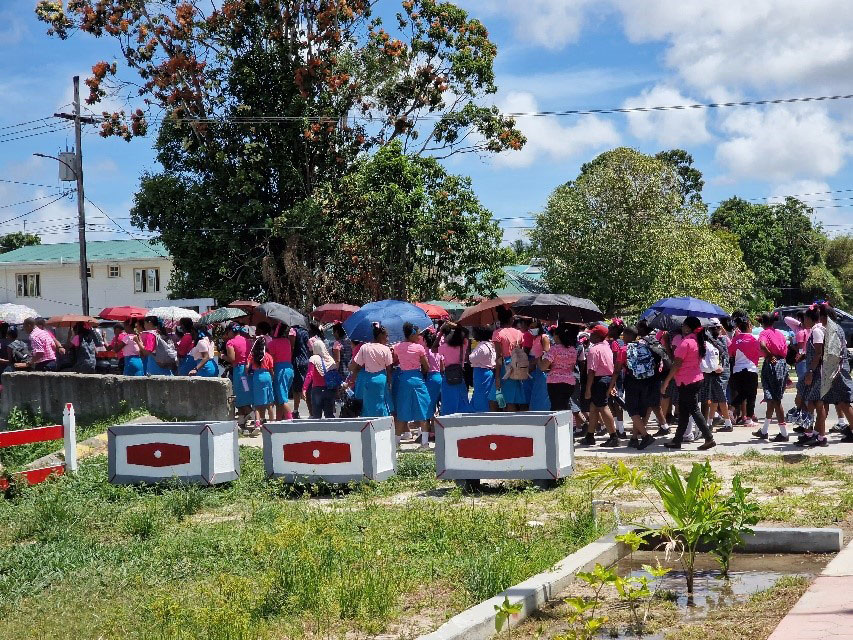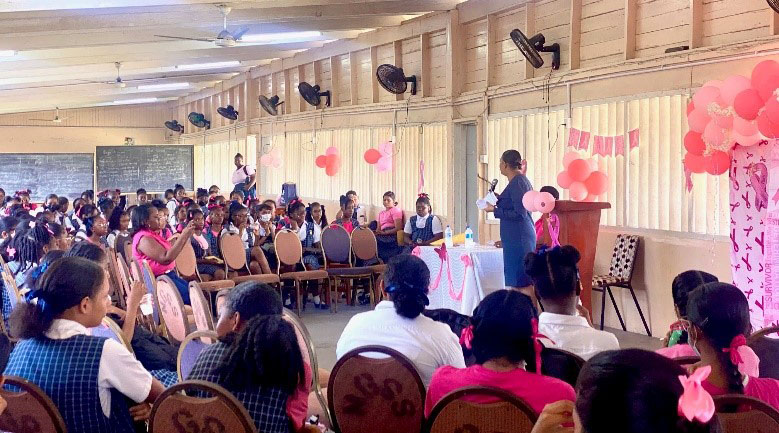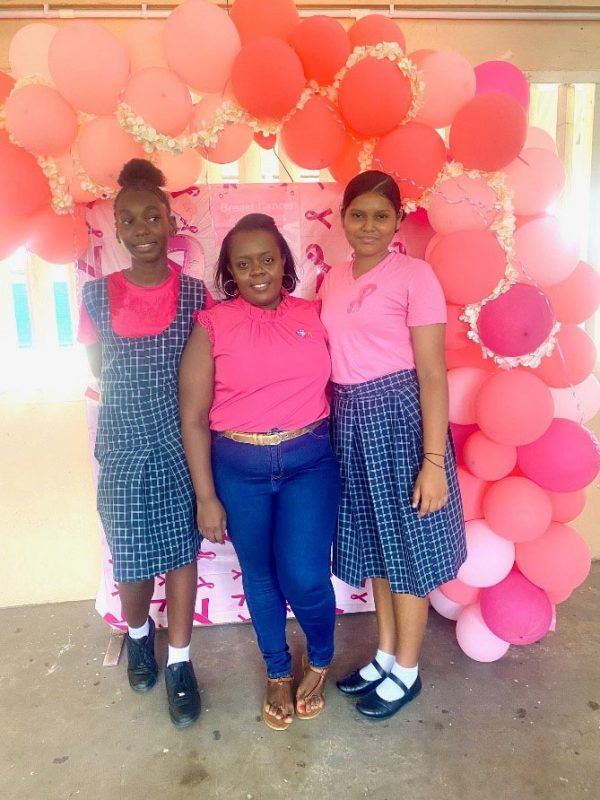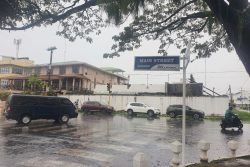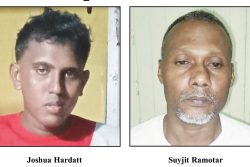As breast cancer awareness month comes to a close, teachers and students in the Woolford Avenue area on Friday turned out in their numbers to show support to those fighting the disease and in honour of those who lost the battle.
These participants donned their pink t-shirts, ribbons, socks, and other clothing and marched through the Avenue as a collective body.
Not only was there a march to mark the observances but each school in the Avenue as well as other schools in Georgetown participated in other related activities. Schools were also decorated with pink ribbons and balloons, and some had their students participate in workshops.
One of these schools, North Georgetown Secondary School (NGSS), invited two nurses who engaged some of the students on a talk about breast cancer. The nurses, Rhyaan Trotman and Karen Daniels, educated the students on the signs of breast cancer and how it can be detected.
The eager students, the majority of whom were females, learnt that anyone can get breast cancer, even infants and males. Nurse Trotman noted, however, that breast cancer in males is rare while older women are more at risk of developing the disease. On this note, she told the students that one in every three women may get breast cancer.
“That can be a mother, a grandmother, a sister, a friend, a teacher,” she added.
Bringing the explanation down to the level of the students’ understanding, Trotman then explained how cancer develops:
“We are all made up of cells… and cells make up tissues and our tissues make up organs, our organs make up systems, and hence we have the human body. Now, you know that the cells are normal shape, structure, and function. What goes wrong with cancer is that these cells decide to misbehave. You know sometimes we misbehave, and when we misbehave, we get licks, [made to] stand up in the corner, phone [is] taken away… and we don’t like that. So just the same, when these cells in our bodies misbehave, we get sick… Wherever in your body this happens that is where the name of the cancer comes from”, she related.
The nurse went on to explain to the young audience that cancer can be genetic and introduced the need for one to get a checkup early. She then proceeded to instruct the students on how to perform a self-examination and advised them to do so regularly.
After the presentation, the students were given the opportunity to ask questions, and many were asked. When the topic of a mastectomy arose, the students were extra attentive, and, as such, questions were asked on whether it can be avoided. In response, the nurse explained to them that this depended on the stage at which the cancer is detected and how far it has spread.
The auditorium, in which the event was held, was solemnly silent as the nurse responded, in the affirmative to the question, “can a person die from breast cancer?”. This response seemed to hit home to all who were present.
Breast cancer is typically associated with older women, but it can also affect young people. Though rare, breast cancer in young people tends to be more aggressive and can be harder to detect due to denser breast tissue.
According to data, breast cancer is the most common type of cancer in women aged 15 to 39 in the United States. Young people who find lumps or changes in their breasts should seek medical attention and not delay checkups. It is also advocated that they regularly check their breasts.
